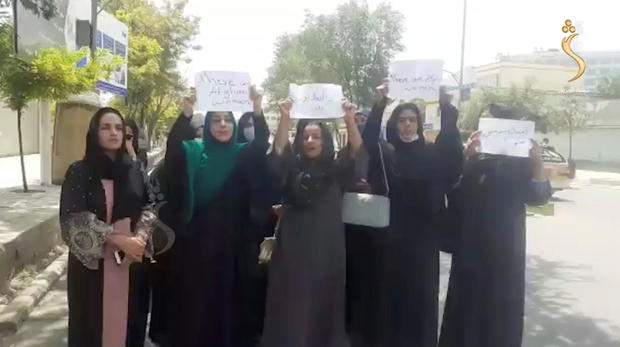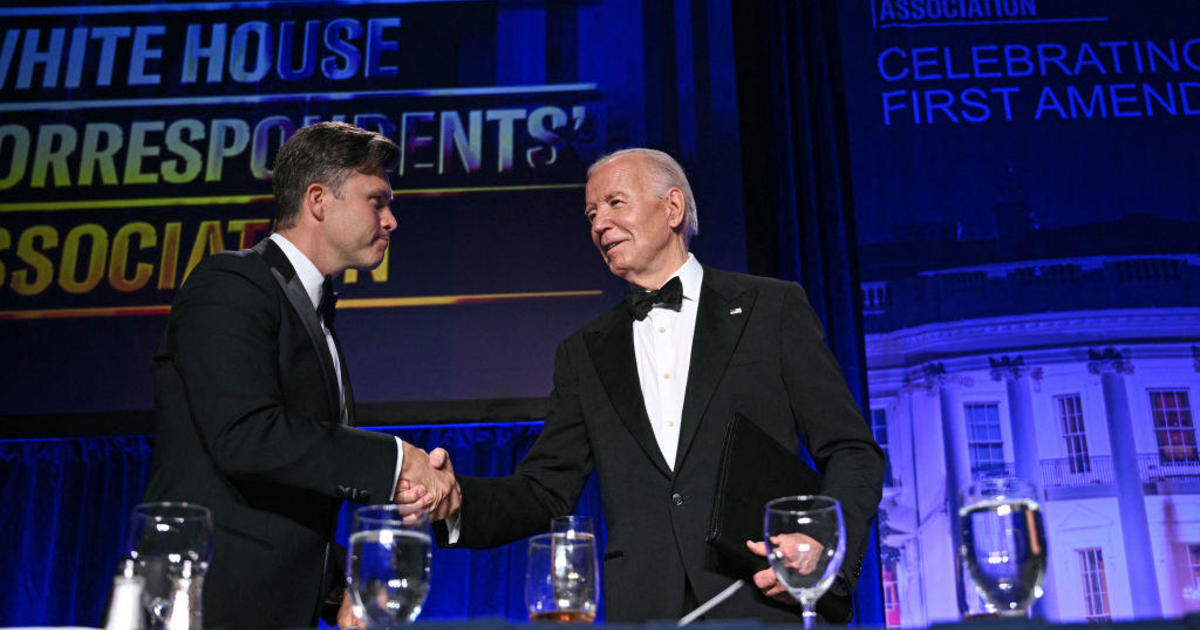Taliban vows to ensure women's rights under Islamic law. What does that mean?
In his first news conference after the Taliban's seizure of Kabul, the group's chief spokesman Zabihullah Mujahid said repeatedly that the group would respect women's rights, "within the framework of Islamic law."
What does that mean?
Islamic or Sharia law is based on the Muslim holy book, the Quran, and on rulings by Islamic scholars around the world. It acts as a code of conduct in all areas of life for Muslims, governing everything from business to daily routines and personal beliefs and practices.
But it is interpreted in a wide variety of ways — there is no single, agreed upon code of Sharia law.
The interpretations range from that used by ISIS to justify the horrors of their brutal Califate, to modern Islamic feminists, who see Sharia as a system that ensures equality for all.
Taliban leaders have suggested that they'll impose a less harsh version of Sharia law on Afghanistan now than they did when they were last in power, from 1996-2001.
During those five years of rule, the group was condemned internationally for enforcing a medieval version of Islamic law, which included punishments such as public hangings, whippings and stonings.
The group banned music, cut off the hands of suspected thieves, and stoned to death those who were convicted of adultery.
But it was the restrictions on women that caused the most outrage and misery. Under the Taliban's interpretation of Sharia law during the 1990s, women and girls could not work, gain an education, or even leave their homes without wearing a burka and being chaperoned by a male relative.
Women who disobeyed the rules were often flogged in the streets.
But when the Taliban started negotiating its so-called peace deal with the Trump administration, it began presenting itself as a more moderate force.
Two years ago, I met Taliban spokesman Suhail Shaheen at a glitzy hotel in the Qatari capital of Doha, where the talks were being held.
"We are not against the education of women and their work," Shaheen said. "(All) we want is that they should do this [while wearing] an Islamic hijab," he told me. But he wouldn't say much more about the specific freedoms that women and girls would have under the group's rule.
Pashtana Durrani had been helping to educate girls in Kandahar, but she went into hiding when the Taliban seized the southern city.
She told CBS News this week that she didn't want to just assume the Taliban were "going to come and murder me, but I would really like for them to accept for a fact that we are just the same people from the same country, right? I just have different views when it comes to girls' education."
The Taliban continues to insist that it will ensure the rights of women and girls, and even said it wants women to join the new government. But recent days have brought a number of announcements of appointments to the new regime, and not a single position has been filled by a woman yet.
Many analysts believe the group is merely running an early public relations campaign to win support from both Afghans and the international community now that it controls the country.
But how long will this apparent PR campaign last? It's still too early to know what the Taliban really means when it says it will govern "within the framework of Islamic law."





